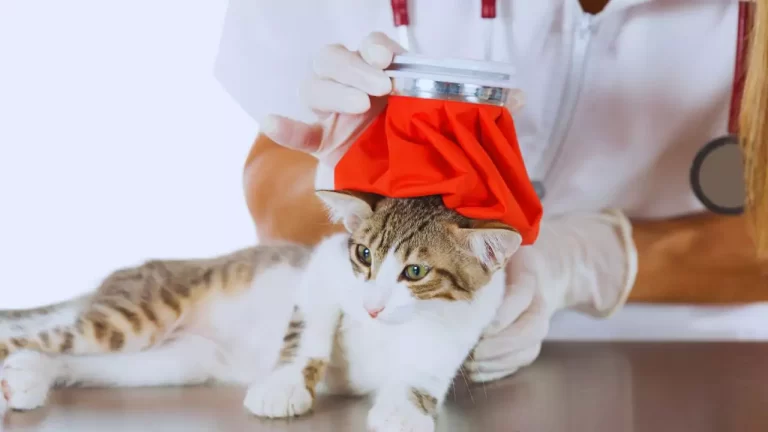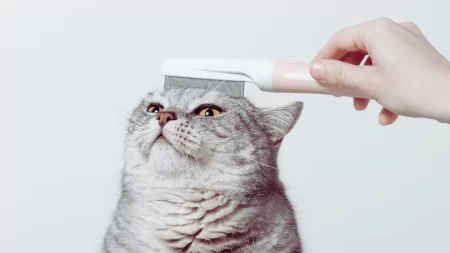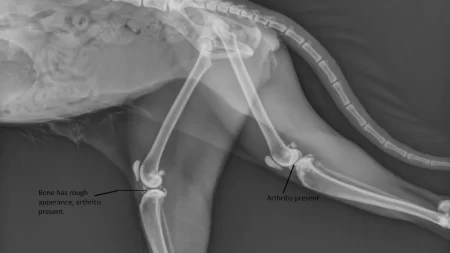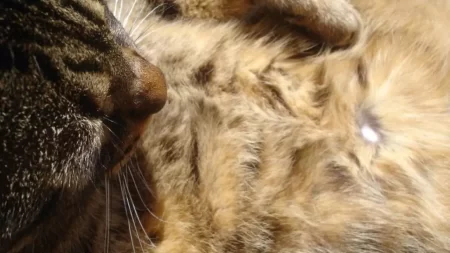Cat flu, also known as feline upper respiratory infection (URI), is a contagious illness that affects a cat’s upper respiratory system. It’s similar to the common cold in humans.
This article dives into the causes, symptoms, treatment options, and prevention methods for cat flu.
What is Cat Flu?
Cat flu is caused by viruses or bacteria, or a combination of both. Here’s a breakdown of the culprits:
- Viruses: Feline herpesvirus-1 (FHV-1) and feline calicivirus (FCV) are the most common culprits. These viruses are highly contagious and can spread through direct contact with an infected cat, or through contaminated objects like food bowls, bedding, or your clothes.
- Bacteria: Chlamydophila felis can also contribute to cat flu, often alongside a viral infection. Chlamydophila felis is particularly contagious among kittens and cats in crowded environments like shelters.
Common Symptoms
Cat flu symptoms can vary depending on the severity of the infection and the specific virus or bacteria involved. Here are some common signs to watch for:
- Sneezing: Frequent sneezing is a telltale sign of cat flu.
- Runny nose: Nasal discharge can be clear or greenish-yellow. Thick mucus can make breathing difficult for your cat.
- Watery eyes: Similar to a runny nose, cats with cat flu might have watery or crusted eyes. This can be uncomfortable for your cat and make it difficult for them to see.
- Fever: A fever can indicate your cat’s body is fighting off the infection. Monitor your cat’s temperature rectally. A normal cat temperature is between 100-102.5 degrees Fahrenheit.
- Loss of appetite: Feeling unwell can make your cat lose interest in food. This can be a concern, especially for kittens who need proper nutrition for growth.
- Lethargy: Cats with cat flu might become less active and sleep more than usual. Lack of energy is a common sign that your cat isn’t feeling well.
- Dehydration: Loss of appetite and difficulty breathing can lead to dehydration. Watch for signs of dehydration like dry gums, sunken eyes, and lethargy. Encourage your cat to drink fluids or consult your vet about fluid administration options.
- Coughing: A persistent cough can be a symptom of cat flu, especially if it’s accompanied by other respiratory signs.
- Ulcers: Mouth ulcers can sometimes develop due to the infection, making it uncomfortable for your cat to eat.
Treating Cat Flu
There’s no cure for cat flu, but treatment focuses on relieving symptoms and helping your cat’s body fight off the infection. Here’s what you can expect:
Medication Options:
- Antibiotics: If bacteria like Chlamydophila felis are involved, your vet might prescribe antibiotics to clear the infection. Antibiotics won’t work against viruses, so they’ll only be prescribed if bacterial involvement is confirmed.
- Antivirals: In some cases, antivirals can help fight specific viruses like feline herpesvirus-1. Antivirals can shorten the duration of illness and reduce the severity of symptoms.
- Eye medications: Eye drops or ointments can soothe irritated eyes caused by watery discharge or conjunctivitis.
- Pain relievers: Pain medication can be prescribed for discomfort from mouth ulcers or other symptoms like headaches or fever.
Home Remedies:
- Hydration: Encourage your cat to drink plenty of fluids. Dehydration is a major concern, especially for kittens. You can offer water from a tuna can, use a pet fountain, or flavor water with a bit of tuna juice.
- Warm steam: Run a warm shower to create a steamy bathroom environment. Let your cat sit in the bathroom for short periods to help clear congestion and loosen mucus.
- Comfort and warmth: Provide a warm, comfortable place for your cat to rest. A quiet room with soft bedding and a heating pad on low can help your cat feel better.
- Tempting food: If your cat loses their appetite, try offering warmed-up canned food or kitten food with a stronger smell. The stronger aroma can entice your cat to eat, even if they’re feeling under the weather.
How Long Does Cat Flu Last?
The duration of cat flu can vary depending on the severity of the infection and your cat’s overall health. In most cases, symptoms improve within 7-10 days with proper care. However, some viruses like Feline Herpesvirus-1 (FHV-1) can become latent and cause occasional flare-ups throughout your cat’s life. These flare-ups might be triggered by stress, illness, or environmental changes.
Prevention and Vaccines
Preventing cat flu is crucial, especially for kittens, senior cats, and cats with weakened immune systems. Here’s how to safeguard your feline friend:
Reducing the Spread of Cat Flu:
- Quarantine new cats: If you’re introducing a new cat to your household, isolate them for a minimum of one week to monitor for any signs of illness before allowing them to interact with your resident cat.
- Minimize contact with sick cats: Avoid letting your cat come into contact with stray or unknown cats who might be carrying the virus.
- Regular cleaning: Disinfect food and water bowls, bedding, and toys regularly, especially if you have multiple cats.
- Minimize stress: Cat’s immune system can get weaker under stress, making them more likely to get sick. Provide a calm and enriching environment for your cat.
Getting Your Cat Vaccinated:
The best way to keep cats from getting cat flu is to vaccinate them. Here’s what you need to know:
- Core vaccines: The FVRCP (feline viral rhinotracheitis, calicivirus, and panleukopenia) vaccine is a core vaccine for cats and protects against feline herpesvirus-1 (FHV-1), feline calicivirus (FCV), and feline panleukopenia virus (feline parvovirus). Kittens typically receive a series of vaccinations starting at around 8 weeks old, with boosters given at specific intervals. Adult cats should also be vaccinated according to your veterinarian’s recommendation.
- Non-core vaccines: The Chlamydophila felis vaccine is considered a non-core vaccine but can be recommended for cats at high risk of exposure, such as those in shelters or multi-cat households. Discuss your cat’s individual needs with your veterinarian to determine if this vaccine is necessary.







